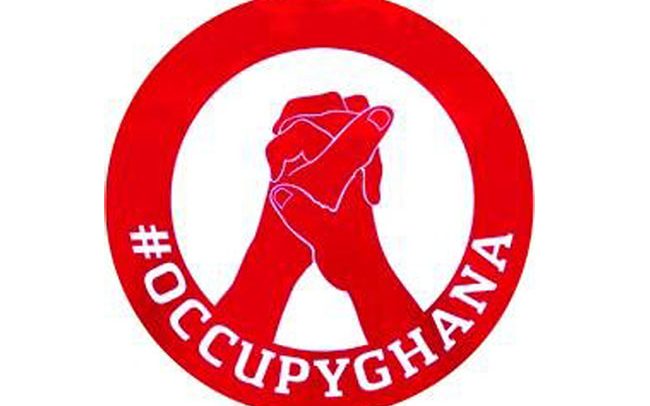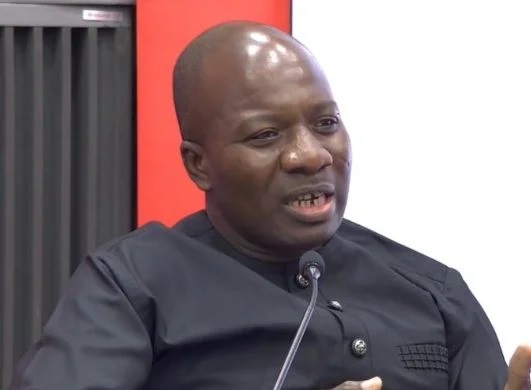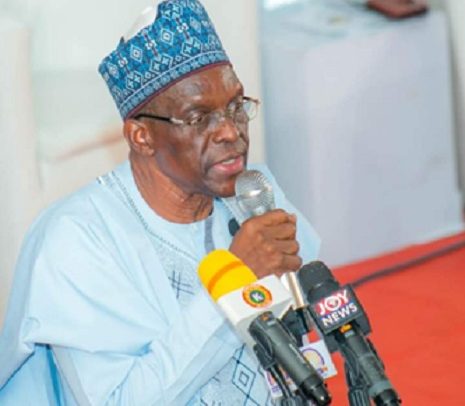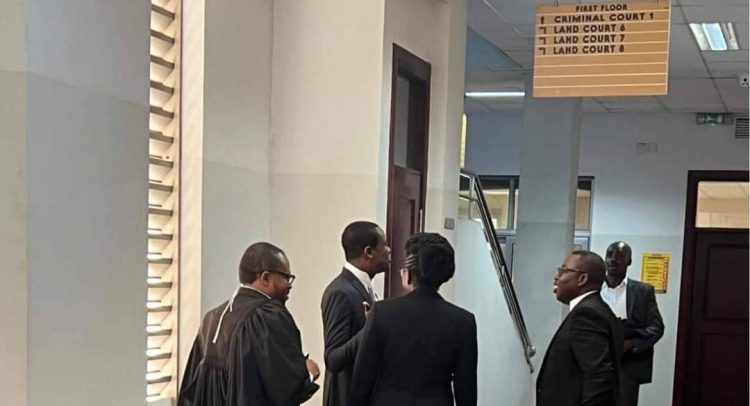
The Office of the Special Prosecutor and the Audit Service are to collaborate to combat financial crime in the country. The two are to work together to prosecute all fraudulent practices and suspicions that lead to the state losing money to fraudsters.
The Special Prosecutor, Mr Martin Amidu said the new arrangement was a departure from previous practices where the Auditor General's report ends with parliamentary discussions and people found culpable of various financial crimes were mostly allowed to go free.
He was speaking at a joint news conference with the Auditor-General, Daniel Yaw Domelovo, to announce the commencement of a special audit of the government payroll.
The special audit of the government payroll, which would start on July 17 in the Central Region, was to remove ghost names and detect suspicions and practices that were being used by unscrupulous individuals for personal economic gains.
Mr Amidu said the collaboration with the Audit Service was to enable his outfit commence investigations and prepare prosecutorial dockets immediately the exercise brings forth any fraudulent practice and suspicions that led to the state losing money to fraudsters.
"My appointment and Mr Domelovo working as the Auditor General has brought two likeminded people together. We have decided that when auditors detect any infractions while working on documents from any of the government ministries, departments and agencies, they should urgently report these practices to the Special Prosecutor for us to begin investigations, take statements and build prosecution documents so that by the time the report is ready, the offender would be lined up to face the law," he stated.
Mr Amidu advised offenders to take advantage of section 71 of the Special Prosecutor Act to report any fraudulent activity with regards to the payroll for lenient sanctions.
He debunked erroneous impression that the Office of the Special Prosecutor deals with only petitions from members of the public saying that his outfit was established to work to initiate actions that could prevent corruption, further investigations as well as recover assets realised from corrupt activities.
In line with the new arrangement, Mr Domelovo said workers on government payroll will from next week have their salaries stopped if they fail to be enumerated in the upcoming payroll audit by the Auditor General.
Mr Domelovo said an audit of the payroll has become necessary due to continuous expansion of the salary bill as well as growing allegations and findings by units of the Audit Service that individuals were using the payroll for personal economic benefits also necessitated the special payroll audit.
"We are aware that people use the payroll as a means of enriching themselves. They put people on the payroll and share the money which is not due them. Again, we also know that some of the names in the payroll are due to administrative lapses. This exercise is to help us know who truly deserves to be on the payroll and whether the salaries paid to them are what must be paid," he stated.
Citing Article 187 (Clause 7) of the 1992 Constitution, the Auditor General said any head of institution that was found to have a 'ghost name' on its payroll would be surcharged and made to face the law.
"In the course of the exercise, if we come across any ghost name of the payroll, I would activate Article 187, Clause 7 and disallow the expenditure and surcharge the head of the institution which may include schools, hospitals and other government departments and establishments," he added.
To ensure that the process was completed and offenders dealt with appropriately as required by law, he said the Audit Service was undertaking the exercise in collaboration with the Office of the Special Prosecutor for investigations and prosecutions of persons found to have fraudulently used the payroll to earn income from the state.
For people who have their names on the payroll fraudulently, the Auditor General advised those individuals to make efforts to purge themselves and pay back to the state monies they acquired through the payroll system.
Mr George Winful, Deputy Auditor General, said about 600,000 workers on the government payroll would be taken through the process, starting from the Central Region, to minimise the recurrence of unearned salaries.
Read Full Story




















Facebook
Twitter
Pinterest
Instagram
Google+
YouTube
LinkedIn
RSS